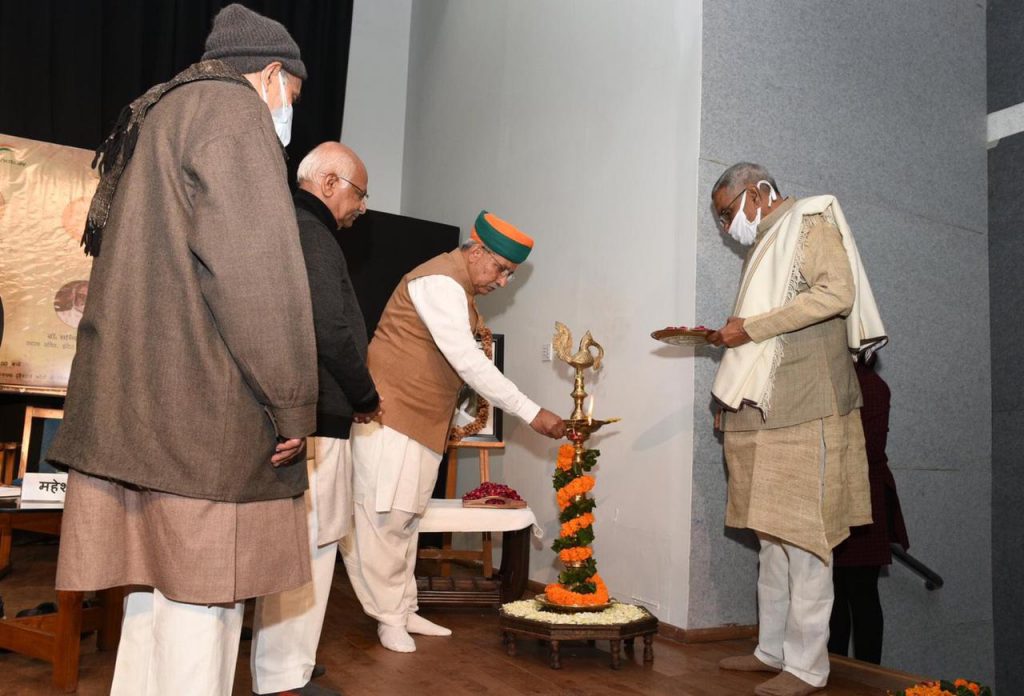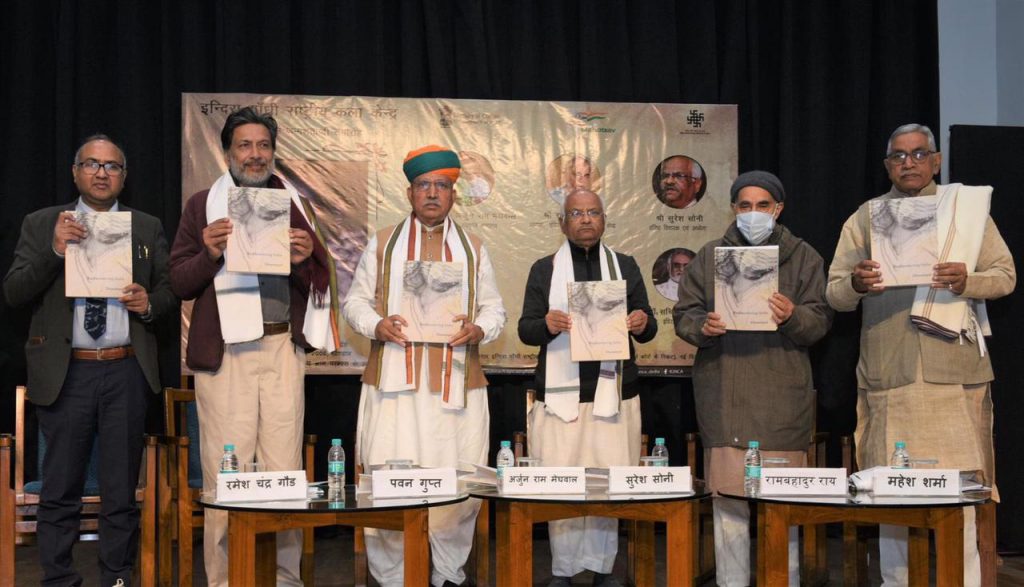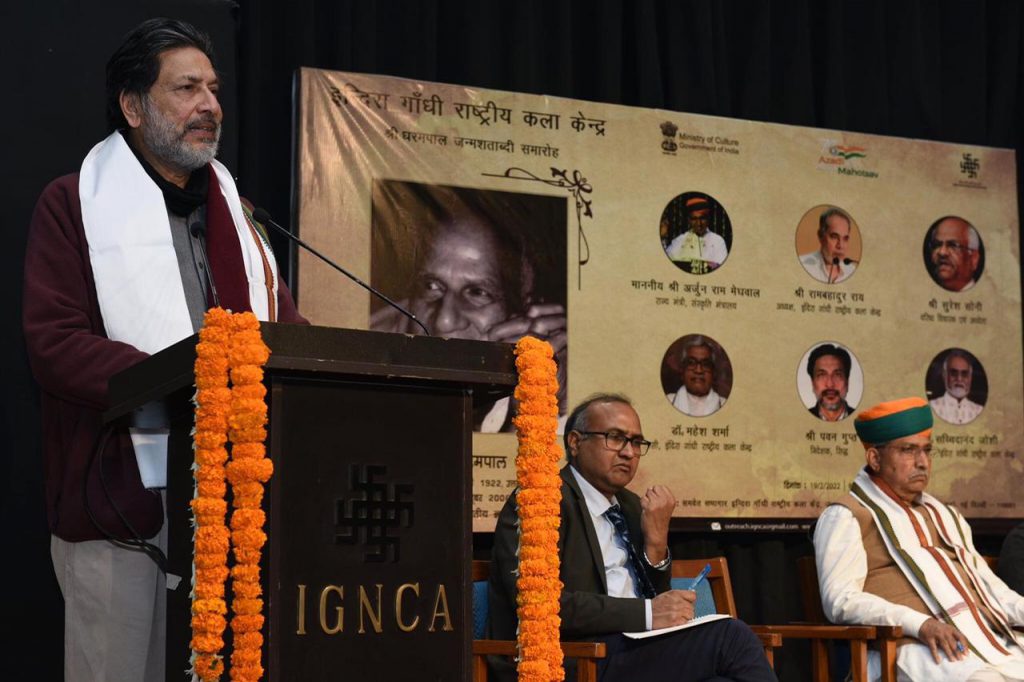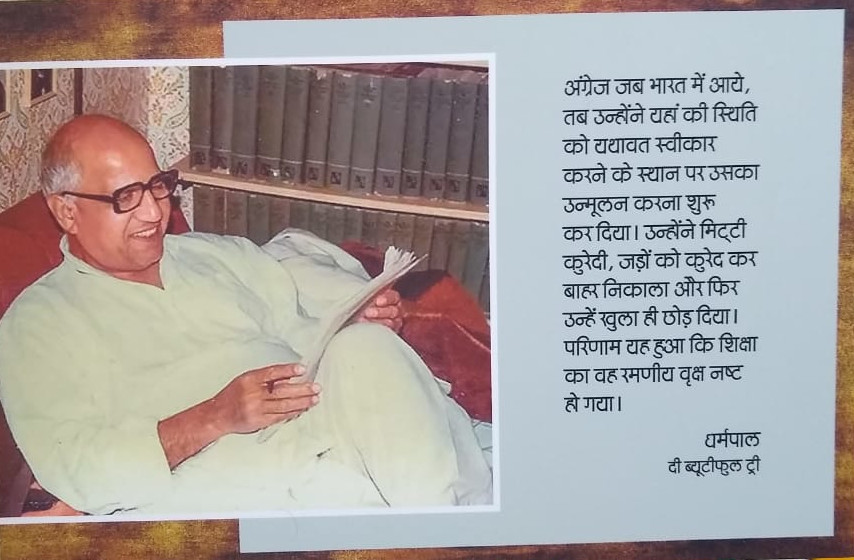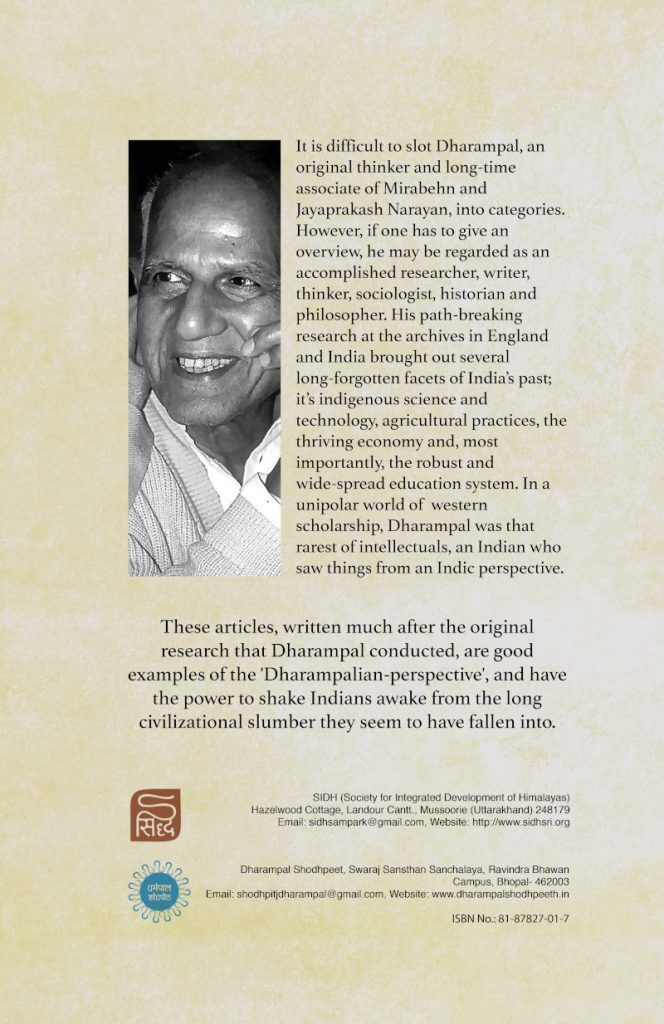The 4-day SIDH samvaad centred around reading and discussing Dharampalji’s Bharatiya Chitta Manas Aur Kaal has just concluded. The samvaad was held at the Krishnamurti Study Centre set in the 100-year-old, 300-acre, wooded campus that also has the Rajghat Besant School and Vasanta College for Women. The campus is situated at the confluence of the Varuna and Ganga rivers and from the first floor of the study centre, where our 30-person group sat talking, we could see the quiet majesty of Gangaji through the trees. It was an ideal location for a contemplative and deep conversation.
The samvaad was memorable for various reasons.
- Since it was held in Varanasi, we could all go for darshans to the many powerful temples there.
- We went for a boat ride on the Ganga passing through all the famous ghats of the city.
- The Krishnamurti Study Centre were the perfect hosts, not only housing us in style and serving delicious food in their dining hall but also, once, taking the full group in one of their buses for a breakfast of the famous Banarasi kachoris and Jilebi.
- The participants, from very diverse backgrounds, included the founders of two schools, two teachers from a rural school, a farmer from central India and eminent scholars.
Dr Brijendra Pandey, a professor from Lucknow University and the founder of the Coomaraswamy Foundation was the main speaker along with Pawan Gupta of SIDH. In the discussions, Professor Pandey talked about many books and articles that can help us break the hypnotic trance of modernity and build our understanding of the way forward. The list, that looks like a full curriculum on modernity and tradition, is as follows (I have copy-pasted the list that Professor Pandey sent us on WhatsApp):
- Bipin Chandra Pal: The Soul of India , Rupa & Co., New Delhi.
- Ananda K Coomaraswamy: Essays in National Idealism , Munshiram Manoharlal Publishers Pvt Ltd, New Delhi.
- Ananda K Coomaraswamy: Art and Swadeshi , Munshiram Manoharlal Publishers Pvt Ltd, New Delhi.
- Ananda K Coomaraswamy: East and West and Other Essays ,Ola Books Ltd, Colombo, Ceylon.
- KC Bhattacharya: Swaraj in Ideas.
- Rabindranath Tagore: Nationalism.
- Swami Chandrashekharendra Saraswati: Hindu Dharma: The Universal Way Life , Bharatiya Vidya Bhavan, Bombay.
- Sri Aurobindo: Foundations of Indian Culture , Sri Aurobindo Ashram, Pondicherry.
- बद्रीशाह: दैशिकशास्त्र , पुनरुत्थान विद्यापीठ, अहमदाबाद।
- स्वामी करपात्रीजी: मार्क्सवाद और रामराज्य , गीताप्रेस, गोरखपुर।
- स्वामी करपात्रीजी: राष्ट्रीय स्वयंसेवक संघ और हिन्दू धर्म , धर्मसंघ प्रकाशन, वाराणसी।
- गिरधर शर्मा चतुर्वेदी: दिग्देशकाल-मीमांसा ।
- Rene Guenon: The Crisis of Modern World , Sophia Perennis, Hillsdale, NY.
- Simone Weil: Gravity and Grace .
- Simone Weil: The Need for Roots .
- Simone Weil: Waiting on God .
- Seyyed Hossein Nasr: Man and Nature .
- Frithjof Schuon: Transcendent Unity of All Religions .
- Frithjof Schuon: Understanding Islam .
- Frithjof Schuon: Stations of Wisdom .
- TS Eliot: The Idea of a Christian Society , Faber and Faber, London.
- AK Saran: Traditional Vision of Man , Central Institute of Higher Tibetan Studies, Sarnath, Varanasi.
- Kenneth Oldmeadow: Traditionalism: Religion in the Light of the Perennial Philosophy , Sri Lanka Institute of Traditional Studies, Colombo.
इनके अतिरिक्त म. म. मोतीलाल शर्मा शास्त्री, म. म. गोपीनाथ कविराज, विश्वनाथ शास्त्री दातार, आचार्य बलदेव उपाध्याय, वासुदेवशरण अग्रवाल तथा विद्यानिवास मिश्र जैसे विद्वानों की भी रचनाएं अवलोकनीय हैं।
इन पुस्तकों को इनके प्रकाशक के माध्यम से अथवा अमेज़न/ फ्लिपकार्ट के माध्यम से मंगाया जा सकता है। कई पुस्तकें आउट ऑफ प्रिंट हैं, इनकी सॉफ्ट कॉपी www.archive.com से ही प्राप्त हो पाएगी।
‘वैज्ञानिक प्रगति’ की अंतर्निहित विसंगतियों को समझने के लिए पाश्चात्य विचारकों की ही निम्नांकित पुस्तकों का अवलोकन किया जा सकता है :
- GH Hardy: A Mathematician’s Apology
- RG Collingwood: The Idea of History
- John Herman Randall (Jr): The Making of the Modern Mind
- Rene Guenon: The Crisis of the Modern World (specifically ‘Sacred and Profane’)
- Seyyed Hossain Nasr: Man and Nature
- Oven Barfield: Saving the Appearances
- Kenneth Oldmeadow: Traditionalism-Religion in the Light of Perennial Philosophy
- Oswald Spengler: The Decline of the West
- Arthur Koestler: The Sleepwalkers
इनके अतिरिक्त प्रोफ़ेसर एके सरन के लेख ‘On Modernity’ तथा ‘धर्म और धर्म-निरपेक्षता’ एवं प्रोफ़ेसर रघुवीर सिंह के लेख ‘पर्यावरण और विकास’ का भी अवलोकन किया जाना चाहिए।
I hope that the list above will be of use to you. As far as I am concerned, it looks like I am going to be busy reading a lot in the near future. 🙂
